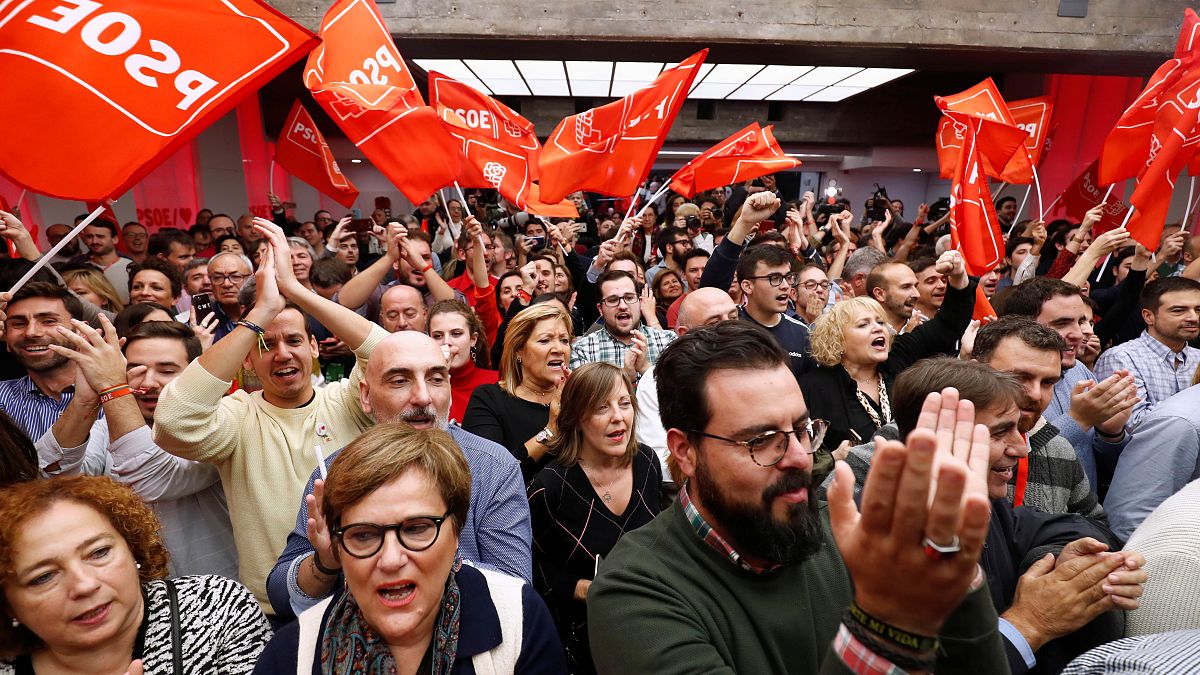Seven months later, the Spaniards have returned to the polls. However, after the November 10 election, the possible majorities in the Spanish Parliament have become even more complicated. According to the results, the socialists have won the elections with 120 seats.
Seven months after the last attempt, Spaniards have returned another parliament without a clearcut majority.
The Socialists won the latest election with 120 seats - three less than they achieved in April.
Political stalemate and the rise of the right: what you need to know about the Spanish Election
But to become prime minister, the candidate has to secure the support of 176 lawmakers on the first vote in Congress or more 'yeses' than 'noes' in a second vote.
PSOE-PP coalition
The sum of the 120 deputies of the Socialists and the 88 deputies of the People's Party would give them a large majority to form a government with 207 seats. However, this option has already been ruled out by both parties. Having said that, Pablo Casado's party could also offer his abstention to Pedro Sánchez to help him become prime minister.
Podemos-PSOE coalition
A coalition of PSOE (120) and Unidas Podemos (26) is far from the required majority and they would need 17 more lawmakers to form a government. Therefore, they would need the support of other political parties.
PSOE- Podemos- PNV- Navarra Sum- Regionalist Party of Cantabria
The sum of the socialists (121 seats) with Unidas Podemos (26), Más País (3), Basque Nationalist Party (7), Navarra Suma (2), Regionalist Party of Cantabria (1), Canarian Coalition (3) would add up to 173 seats, not enough to get a majority.
A coalition with the separatist parties
A coalition of PSOE (121), Unidas Podemos (26), Más Pais (3), Esquerra Republicana (13), Junts Per Cat (8), Bildu (5), CUP (2) would add up to 187 seats, which would allow them to form a majority government. However, this solution appears unlikely because of the major differences between the socialists and the independentist parties.
The block on the right
The rise of Vox (52), while remarkable, does not do enough to form a right-wing coalition government as the Citizens' party only got 10 seats. Adding these to the results of the Popular Party (88) the total would still only be 150.
